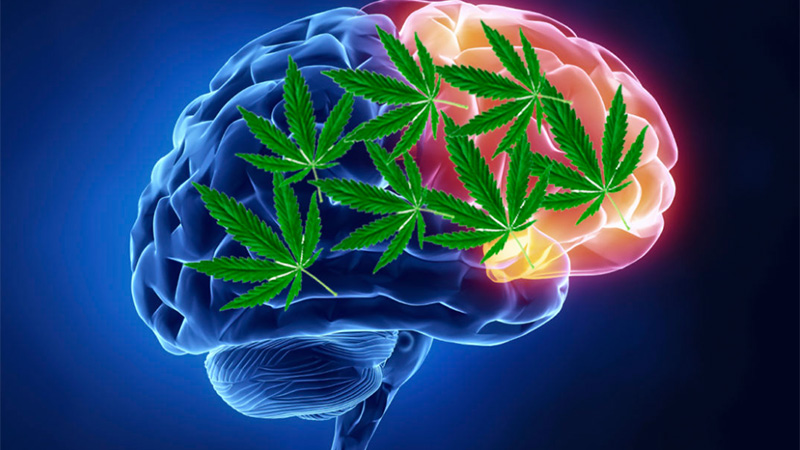How Cannabis Affects Your Ability to Concentrate and Work
Marijuana, also known as cannabis, has been around for a long time and, especially recently, has become quite controversial. Some condemn it while others swear by it. As we speak, this drug happens to the most popular illegal drug globally, according to the Ministry of Hemp, and people are pushing for its legalization everywhere, for both medical and recreational purposes. If it’s legal to grow marijuana where you live, you can try cultivating your own cannabis in order to make sure it’s the highest quality for the medicinal treatment you’re looking for. This way, you can ensure that it’s grown with the utmost care and respect.
Marijuana is so popular and well-known that it has even been mentioned in the Bible as “kaneh-bosm.” Something ironic, however, is that, for a drug that’s been around for so long, we don’t know very much about it from research. A lot of research needs to be done to find out what are its health effects.

Part of the reason why marijuana hasn’t been as widely studied as it should is the fact that it is classified by the United States Food and Drug Administration (FDA) as a Schedule I drug. Schedule I drugs are considered the most dangerous of all drugs and currently include such drugs as LSD, ecstasy and heroin. Interestingly enough, cocaine and methamphetamine are considered less dangerous than marijuana since they’re Schedule II drugs.
To carry out any clinical research with cannabis, you’re going to have to get licensed by the Drug Enforcement Administration (DEA) and have your study approved by the FDA. It doesn’t end there, either. To get the right marijuana for research, also known as research-grade marijuana, you’ll have to get it from the National Institute on Drug Abuse.
Outside of all this red tape, it is illegal to own marijuana. This is federal law and so holds even in states where marijuana has been legalized. If you happen to work in a college, hospital or any other institution where your funding is federal in nature, then you’re running the risk of losing funding for your research by having marijuana.
There’s been plenty of effort exerted by lobby groups pushing to have marijuana reclassified so that it can be studied more easily. However, for now, we’ll have to work with the information we have as far as its effects on our brains are concerned.
The Effect of Marijuana on Our Brains in the First Few Hours
Cannabis contains a group of compounds known as cannabinoids. There are at least 60 of them that act on different receptors in different parts of our brain. Most of the effects brought about by marijuana are as a result of tetrahydrocannabinol (THC). This is what gives us that all-too-familiar high when we take marijuana. THC is very similar in appearance to another cannabinoid that happens to be a natural product of our brains: anandamide. Anandamide regulates various things, including our appetite, memory, sleep and overall mood.
The main effect of cannabinoids on our brain is as magnifiers. They get our neurons to fire on overdrive, and our perceptions and thoughts are magnified. The result is that we fixate on these thoughts and perceptions until another thought or perception comes our way. For that reason, it’s not a good idea to take part in anything that requires a lot of coordination when you’re high, such as playing sports or driving.
Another thing about marijuana is that it increases the dopamine levels in our brains and leaves us in a euphoric and relaxed state. Other effects include making us hungry and also making it hard for us to form new memories.
The full effect of marijuana depends on the amount you have taken and the potency of the marijuana. At very high doses, marijuana can cause very scary hallucinations.
The effects of marijuana will also be different from one individual to the next. Not all people will enjoy the experience or even find it relaxing. Naturally anxious people might see their anxiety magnified into panic.
The Effect of Marijuana on Memory & Concentration
Most of the effects mentioned above are short-term and will generally wear off after a few hours. The more interesting thing to know here is how marijuana affects us when we use it regularly or in heavy doses, even if occasionally. While there aren’t a lot of scientific studies on this, a recent review finds the following on concentration and working memory.
Effect on Concentration
Even if you’re rich and successful, marijuana will impair your concentration and attention if you’re a light user. However, it doesn’t continue to do so within six hours of taking it, even if you’re a heavy or regular user. Researchers found that the most long-lasting effects of marijuana on attention and concentration did not last beyond three weeks, even among the heaviest users of the substance.
Effect on Working Memory
There are lots of studies on this, and they also find that marijuana does not have any long term effects on working memory. In a study carried out in 2002, 77 heavy marijuana smokers were tested for many days after abstaining from the substance. For the heaviest users, memory impairment lasted about seven days on average. However, the impairment had completely work off, and test subjects’ working memory were no different from the working memory of control subject by the 28th day.
What that means is that marijuana will affect your ability to be attentive and concentrate, as well as your working memory, when you take it the first time and also if you’re a regular or heavy user. However, no matter how much you take or how heavily you use marijuana, the minute you abstain from it, the effects begin to wear off and are completely gone in a month’s time.
Studies on marijuana also show that there is no strong link between taking marijuana frequently and being predisposed to violent crime as is often believed. There is a weak link between marijuana usage and depression, although the link is unclear, and the same goes for the link between marijuana usage and congenital defects.
Marijuana has, however, been linked to respiratory problems when heavily used via smoking and, for teenagers, heavy usage has been linked to having a harder time fitting into society.



